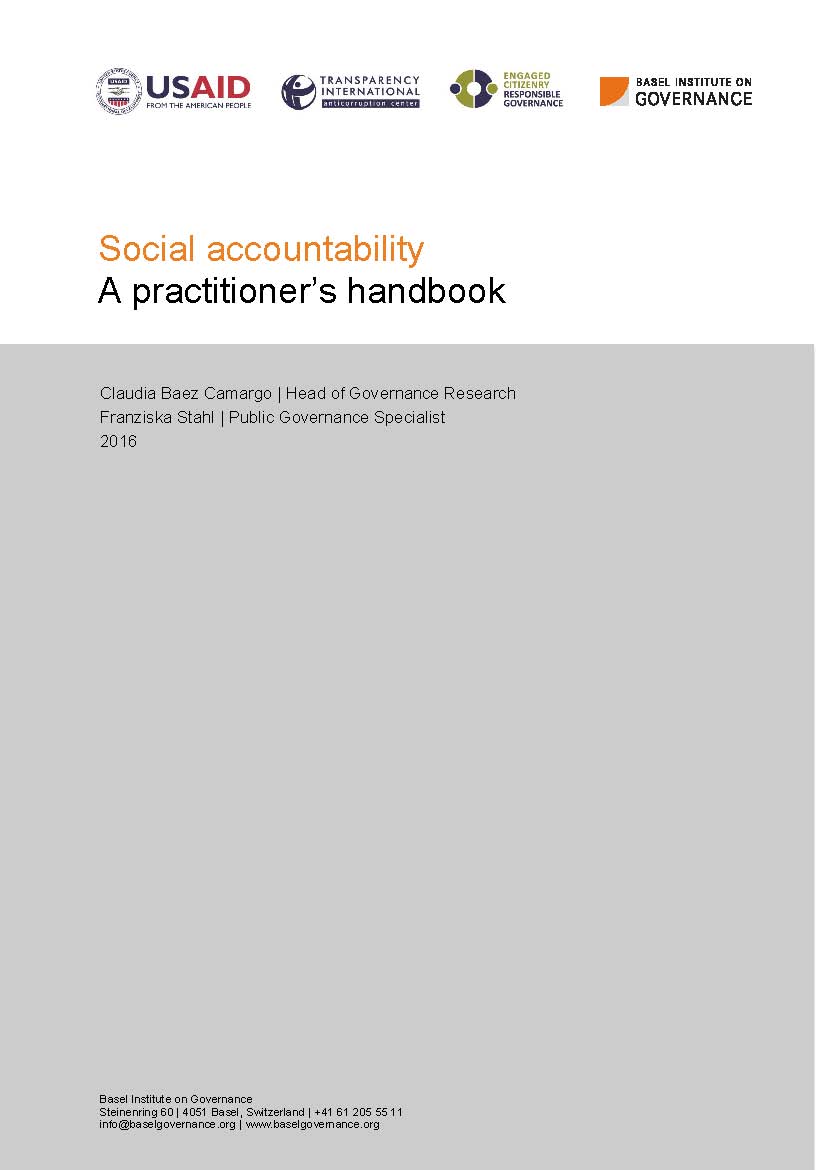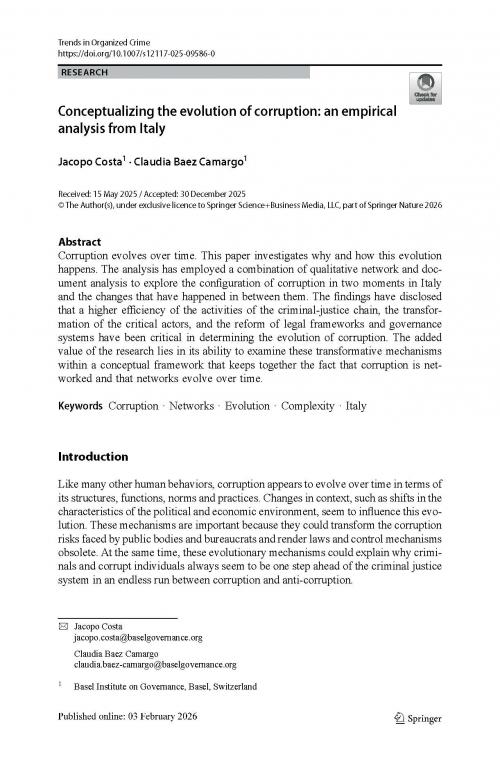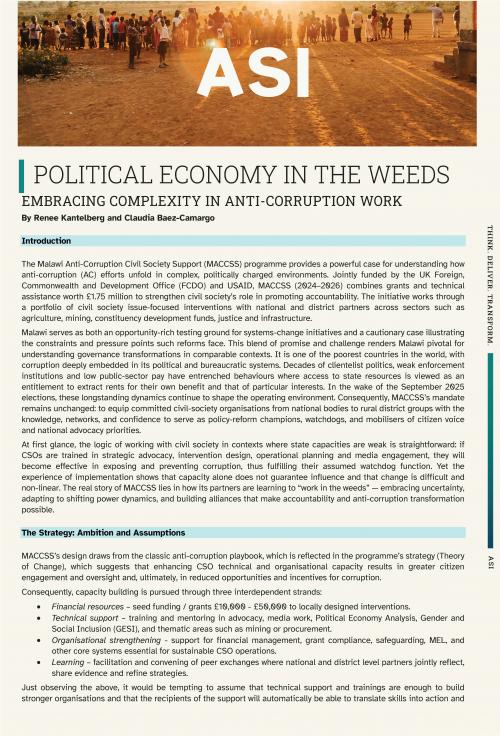Social accountability: a practitioner’s handbook
This handbook has been produced by the Basel Institute on Governance in support of the USAID-funded project "Engaged Citizenry for Responsible Governance”. It is meant to be used in conjunction with the handbook on participatory monitoring, developed by the Basel Institute in support of the same project.
The material here contained has been developed as a tool to support implementers who wish to engage citizens in anti-corruption activities. It is based on the findings of extensive research on the topic, which have been synthesized in the form of an assessment framework and methodology that capture the main elements that play a role in enabling the success of social accountability initiatives.
These elements may be summarized as:
- promoting changes in both supply and demand for corruption;
- addressing problems that are perceived as important and highly significant by the actors involved;
- building upon locally legitimate accountability mechanisms (O’Meally 2013).
In order to illustrate the operationalization of some key concepts throughout the handbook, reference is made to four case studies where the methodology has been successfully applied.
In addition, for ease of reference, boxes summarizing the most important steps to contextualise and tailor social accountability initiatives to the local context are included throughout the document at the end of each section.
It was translated into Armenian and published by the Transparency International Anticorruption Center.
Links and other languages




